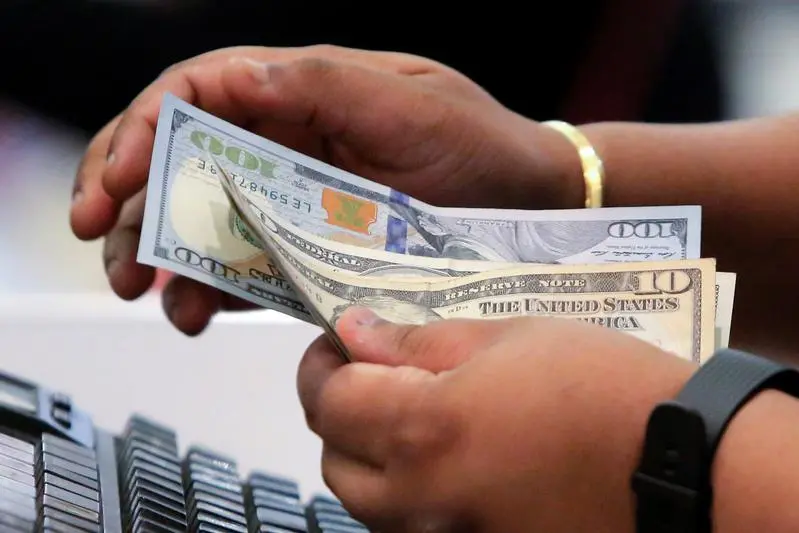PHOTO
LONDON- The U.S. dollar strengthened on Wednesday as U.S. economic data suggested the Federal Reserve was unlikely to cut interest rates further and as liquidity shrank before the coming holidays.
The dollar rose against the euro, which has struggled to stay above its 200-day moving average, and against the pound, which has lost all its election gains on fears Britain could leave the EU without a trade deal.
Industrial production rebounded in the United States in November, mainly because a strike by General Motors workers ended. Money markets are not pricing in a rate cut anytime soon.
The dollar is enjoying the "legacy of the data looking better yesterday and the lack of liquidity towards month and year end," said Jeremy Stretch, head of currencies at CIBC Capital Markets.
However, it "looks like we could start to pre-positon for greenback weakness next year," he said, noting the threat of domestic politics and "slightly better growth outside of the U.S."
German business morale rose more than expected in December, a survey showed on Wednesday, another sign that a manufacturing slump in Europe's largest economy may be bottoming out after overall output shrank earlier in the year.
Data failed, however, to help the falling euro, which was last down 0.2% at $1.1124, below the 200-day moving average of $1.11515.
U.S. Trade Representative Robert Lighthizer said on Tuesday that the United States may raise tariffs on European goods as it tries to shrink its chronic trade deficit with the continent, re-igniting worries of the prospects of the export-driven euro.
The U.S. House of Representatives is due to vote on whether to impeach President Donald Trump later in the day and the Senate is expected to vote in January.
CIBC's Stretch said this is "a high-profile news story, but it doesn't have a large impact on the markets."
An index that tracks the dollar against six major currencies jumped to a six-day high of 97.343 and was last up at 97.288.
The pound was down by 0.2% at $1.3102 after falling to $1.3074, its weakest since Thursday's election gave the pro-Brexit Conservative Party a majority in parliament.
The pound extended its slide on rekindled fears of a chaotic exit from the European Union. Having campaigned to "get Brexit done," Prime Minister Boris Johnson's government on Tuesday set the end of 2020 as an immovable deadline.
The dollar slid below 7 to the Chinese yuan, as the United States and China complete phase one of a trade deal, though worries remain over their future relationship.
"The enthusiasm to the phase one trade deal announced last week appears to be fading," said Charlie Lay, an analyst at Commerzbank, adding that "the market’s ambivalence is understandable given that there are few details."
Elsewhere, the New Zealand dollar and the Swedish crown fell to a one-week low of 0.6555 against the dollar NZD=D3 and of 10.4960 against the euro respectively.
(Reporting by Olga Cotaga, editing by Larry King) ((olga.cotaga@thomsonreuters.com))





















